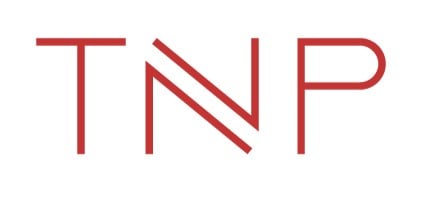

General counsel and company secretary | Nigeria LNG



Akachukwu Adeyinka Nwokedi
General counsel and company secretary | Nigeria LNG
Team size: 17
What are the most significant cases or transactions that your legal team has recently been involved in?
The core focus of the NLNG legal team is the creation, preservation and protection of stakeholder value for the NLNG Group in full compliance with applicable laws and regulations, while leading workstreams that have successfully delivered solutions to significant business problems. In 2023, the team was involved in several notable contentious and non-contentious matters and transactions, including:
Successfully challenging the Senate of the National Assembly in court in relation to an award of ₦18bn issued against the company. The success and outcome which was well publicised has provided comfort to corporate entities operating within the Nigerian business environment;
Developing a framework to collaborate with a notable industry regulator, involving the investment of circa $60m in critical operational infrastructure currently unavailable in Nigeria, which will create a hub for LNGC and VLCC maintenance in-country;
Successfully defending commercial arbitration claims in excess of $500m.
How have you attempted to bring the legal department closer to your business colleagues?
“Legal as Business” was the innovative platform and initiative deployed to restructure, reorganise and reposition the legal function, bringing it close to the business and changing its reputation to a value creating and solution oriented in-house legal team at the centre of all critical decision making.
We now have ‘coalface’ legal support with lawyers embedded in the production and commercial teams, working together to anticipate and mitigate legal risk. These teams are supported by a legal centre of excellence that provides effective back up to all other corporate functions. NLNG in-house legal are now seen as part of the solution – a major paradigm shift in our business. LAB’s successes have come at no extra cost to NLNG.
What are some of the main trends in the industry sector you work in in Nigeria?
The energy transition is the biggest trend in the global oil and gas industry, at a time Nigeria pursues the Decade of Gas to optimise the monetisation of its stranded gas resources and attain its full potential.
Decarbonisation and the journey to net-zero emissions are necessary corollaries of this transition and we all owe the world an obligation to exploit resources in a sensible and environmentally sustainable manner to ensure that future generations benefit from a clean and safe earth.
NLNG is committed to this journey and has committed to a more aggressive NZE timeline than the federal government (2040 as against 2060), and is taking active steps to achieve this ambitious goal. The regulatory framework that will underpin these changes is continuously evolving globally and in formative stages in Nigeria, and we continue to work closely with the relevant regulators by facilitating knowledge sharing sessions with class leading practitioners; and making legal and other company resources available to support the development of a fit-for-purpose regulatory framework for Nigeria.
What are some of the main legislative or regulatory changes that have impacted you?
The changes to the oil and gas industry introduced by the Petroleum Industry Act of 2021 have been celebrated by many as timely and purposeful. However, the development of the required regulations has been slower than expected and a few gaps have been observed.
Of significance note are the provisions concerning host-community development trusts given that NLNG as a socially responsible corporate has consistently invested in its host communities. The new legislation applies specifically to upstream players, (which NLNG is not) which has directly affected some collaborative arrangements. Delay in resolving matters such as these will directly and negatively impact the ultimate beneficiaries.
The second important development is the Business Facilitation Act, aimed at improving the ease of doing business in Nigeria with some transformational provisions that tackle bureaucracy head-on and give businesses the ability to progress their initiatives when faced with unexplainable delays from regulators.
It mandates all government agencies to enter into service level agreements with businesses and specifies timelines for action. There are sanctions embedded in the legislation for erring government functionaries, and while this legislation is not yet fully in effect, it is one that we eagerly look forward to as it will positively impact the business experience in Nigeria.